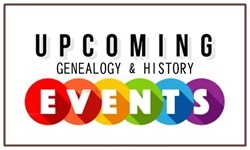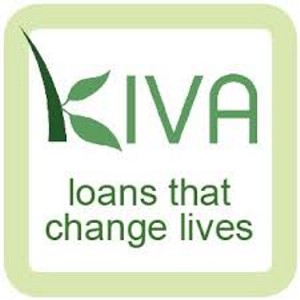Facebook for Australian & New Zealand History and Genealogy
Since releasing my first big list of Australian history and genealogy links on Facebook in September 2016, I’ve continued to find more, and more, and periodically do updates.
So what started out as a list of a few hundred links, has grown to large list of 2085 links (as at 26 January 2023). That’s 77 pages worth of Australian and New Zealand history and genealogy links … just on Facebook.
I haven’t added any new categories with this update, but there are additions to nearly every category that’s listed.
DOWNLOAD HERE
This is an ongoing project which will be updated periodically, so if you have any links you’d like added, please either send an email to alona @ lonetester.com (without the spaces), or message me on my Lonetester Facebook page.
————–
And I can’t mention genealogy on Facebook without making reference to two other incredible lists:
– Katherine Willson’s worldwide Genealogy on Facebook list is enormous, and now has over 16,700 links.
– Gail Dever’s Facebook for Canadian Genealogy list of over 1000 links is a must for everyone with Canadian connections.
Facebook vs Blogging: The Pros and Cons
Over the past couple of weeks I’ve seen a few geneabloggers writing about the topic of “is genealogy blogging dying” (see the links at the end), which are suggesting that there are far less active genealogy blogs and/or bloggers, now than there were a few years ago, and that people are turning to social media (namely Facebook) instead. They may well be, but I’m not going into that.
Personally I can see that there is a case for both, but it purely depends on what the reason behind you doing it is. So I thought I’d just run through a few of the key features of both a blog and Facebook for you, to highlight the differences.
Let me start of by saying that there are different types of Facebook accounts. There is your own personal account, there are pages, and there are groups, and all of them have a different purpose.
The Pros
– it’s free
– the amount of people there … Facebook states that they have over one billion active Facebook users
– you can have a private group on Facebook (so you can have your own non-public family group, so you can get your cousins, aunts, uncles, nephews and nieces together on Facebook to chat and share family memories and/or photos)
– you can have a group for Descendants of … to keep in touch with the wider family
The Cons
– not everyone is (or wants to be) on Facebook
– it’s not indexed by Google
– a photo or story that is put up, is essentially seen once, then lost in the feed
– not everything shows up in Facebook, so many posts simply don’t get seen
BLOGGING
Please note some blogs cost money to set up, and others are free. For this purpose I’m simply referring to the free blogs like WordPress.com and Blogger.
The Pros
– it’s free (unless you get the paid version).
– cousin-bait. Everything written on your blog is indexed by Google, Internet Archive, the NLA’s Pandora site and other search engines. So if you write about your missing ancestor from Somerset in 1823 (or wherever) … someone could well Google that person’s name, and up comes your blog post! Ta da … you have a new cousin. And hopefully you have easy-to-find contact details on your blog, and they will get in touch. It happens.
– share the family stories, as then they are being preserved, and not just a memory in your head.
– finding and sharing the stories will get the wider family interested, which is a good thing.
– sharing your research journey (both your finds and frustrations), helps educate others.
The Cons
– you need to learn “how” to set up a blog and get started, which is where a number of people get stuck. Google and YouTube a great for this, and can give you step-by-step instructions.
– time to write can be a factor
– some people don’t want to write something until they feel it’s 100% right, which is admirable, but obviously takes time. My comment is just put up what you have, with qualifications saying it’s a work in progress.
– people are likely to copy/steal your info and photos without contacting you, or reference back to you. Sadly it happens. Too often no attribution is given.
– lack of inspiration on what to write about. Personally I don’t have this problem, but my blog genre although it is genealogy-related, is wide ranging. But others have chosen to blog about a very narrow topic, be it a family or a place, a person, a military battalion, a voyage, someone’s diary and so on. Thomas MacEntee of GeneaBloggers has a list of daily blog prompts which you can use if you need something to give your blog a boost.
————–
I run both blogs and Facebook pages, and am a member of many Facebook groups. My blogs work fine for me, in that I use them to record my family stories and get them out there, but one of my Facebook pages, which is about the history of a small town, I’m still not convinced is the best place for it. For discussion it is good, but for longevity, I’m not sure that’s where I want to put all my effort in – simply because you see it on Facebook, then it’s gone, and not easily findable again.
So in my opinion a website, or even better, a wiki would serve this purpose better. But that will take time, so we’ll see what eventuates.
So as you can see both are useful. But if it’s longevity that you’re after for your history and stories, you can’t beat a blog. But for interaction, a Facebook group or page can work well. And there’s no reason why you can’t do both.
————-
RELATED ARTICLES
Julie Cahill Tarr started the whole conversation by asking “What happened to genealogy blogging?”, so have a read of her post, as well as those following, who have responded with their take on it.
Julie Cahill Tarr – What Happened to Genealogy Blogging?
James Tanner – Are We Nearing the End of Genealogy Blogging?
Thomas MacEntee – Major Changes at GeneaBloggers.com
Amy Johnson Crow – Is Genealogy Blogging Dead?
Another Copyright Issue
Copyright. Yes, it’s that word again. The word few like the hear. The word that gets me kicked out of Facebook groups. But the word copyright is an important one.
Copyright is there for a reason. Copyight is a law that is there to protect the work of the author or compiler.
But before I get into that, let me just say that there’s no doubt that genealogists for the most part, are a wonderful bunch of generous people who love to help each other out. Be it on research advice, cemetery visits, or lookups.
Research advice, fine. Cemetery visits, transcriptions or headstone photos fine. But lookups can be an issue.
The issue of doing lookups from big-pay-sites has been mentioned before, and you can read all about that here, as has the general copyright issue before which you can read here. But another copyright issue has come up that needs to be addressed, and that is offering lookups from books.
In theory doing a lookup from a book sounds fine. You have a book, you offer to do lookups, and respond back to those who ask with details of yes/no they’re in there. But this is the digital age, and what I saw on Facebook was someone offering to do lookups from a number of books (probably all out of print, but all still in copyright). But to help out fellow researchers, the person had kindly photographed the entire index of each book and pasted it online.
Like it or not, that breaches copyright law.
Several in fact.
But not only that, the person then posted photographs of EVERY page that anyone was interested in.
Again.
That breaches copyright.
Copyright is there for a reason. It is to protect the author’s work. And in Australian Copyright Law, works are protected for up to 70 years after the author’s death.
So while this person was being helpful in offering lookups, it is wrong to do it that way.
Offering to do lookups is fine (and very admirable), but don’t put up images of the indexes, and pages. And if you do supply a copy or image of any page definitely don’t put it out there publicly. But ideally, why not refer the person to the local library or society, afterall that’s what they are there for.
I’m not going to name names, or Facebook groups. I’ve simply chosen to write this in the hope that it will educate others on the law.
For more on Australian copyright law, head on over to the Australian Copyright Council website.
Tips for Genealogy Bloggers
While I was writing this post, I had a feeling that I had written something similar some time ago. And sure enough back in 2013, I wrote “Tips for Geneablogger Readers and Writers“.
In rereading that list, I still find all of those points are 100% valid, so won’t repeat the whole thing, but rather have summarised them below, and now I want to add a couple of extras.
Summary list …
1. Allow comments on your blog
2. If you use photographs on your blog, label them
3. Put share buttons on your blog
4. Have a search function on your blog
5. Use images, there’s plenty you can get for free
6. If you a blog post and you liked it, leave a comment
Now for my extras …
1. Include details
By this I mean if you are writing about an ancestor be specific. Include names, dates and places as Google indexes these, and people search for them will end up on your blog. It’s pure cousin-bait.
2. Use your own voice
Write in your own voice, your own style. You don’t have to be a novelist or author to be a blogger. Just simply write like you talk. As the title says “use your own voice”, and it will sound natural to people. And natural helps connect with people.
So in essence, make your blog look good, people like pictures. And make it easy for people to share, and find their way around your blog.
That’s just my suggestions, and I’m no pro-blogger by far. But these are things I’ve just picked up over the years of reading and writing blogs, so hopefully someone will find them useful. And by the way, these apply any blogger – not just genealogy bloggers.




